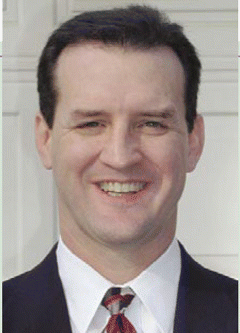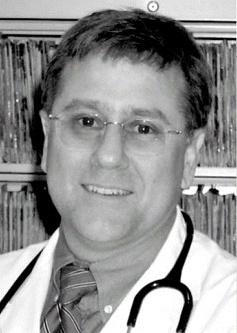Transitioning to a cash-only practice can increase your income-and your career satisfaction
As insurance reimbursements decline and the administrative tasks associated with third-party payment increase, some physicians choose to move to a cash-only office, where patients pay at the time of service. Two physicians who treat otolaryngology conditions shared their experiences with this approach with ENToday.
A Slow Shift in Louisiana
Gerard J. Gianoli, MD, an otolaryngologist-head and neck surgeon and an ENToday board member, worked at Tulane University School of Medicine until 2000 when he joined a two-doctor private practice in Baton Rouge, La. After he made that transition, he and his partner looked over the whole financial picture. They evaluated which insurance companies provided the lowest reimbursement and the highest grief factor, said Dr. Gianoli. And then we just started cutting them out.
In November 2005, they ended their last insurance contract; it had also been one of their largest contracts. The decision was driven by several factors. First, the insurance company had started to become more difficult to deal with and started to deny claims for services or procedures that they had routinely paid for in the past. Second, in the aftermath of Katrina, health insurance companies were not allowed to drop individuals because of unpaid premiums, but the companies were only liable for 50% of what they would normally have paid for their services-and the prompt payment law was suspended in Louisiana. That meant, said Dr. Gianoli, that instead of recovering 50 cents on the dollar and being paid within 30 days, they would get 25 cents on the dollar and have to wait as much as six months. They decided it wasn’t worth it and canceled the last contract.
Anyone can (move to a cash-only system)-it’s just a matter of whether they want to do it. Laying it on the line and saying, this is how much my services are worth, is a little scary. – Gerard J. Gianoli, MD
At that point, the office was already at about 60% cash-only basis. We haven’t noticed a monetary difference, probably because the change was so slow, he said. In fact, after the team opted out of Medicare a couple of years ago, their income increased because those appointment slots were filled with patients-Medicare or other-who were willing to pay for services.
Transparency with Patients
The office tells patients up front what their charge will be. If it is not clear beforehand what a patient will require, the office provides a range so that there are no surprises. The patients pay at the time of service and are given their Medicare or Medicaid forms so that they can apply for their own benefits. The interesting thing with that is that the patients are getting reimbursed at a higher rate than we were getting, said Dr. Gianoli.
Not everyone is comfortable with the arrangement, and some patients opt not to make an appointment when they find out that they will have to cover the cost of the visit. In some cases, Dr. Gianoli will decrease his fee for patients who have a hard time paying, but patients do not know this up front.
Without insurance paperwork to deal with, the doctors have decreased the number of staff people they have in the office. At the peak, they had ten staff members. Now they are down to five, with a part-time office manager, two front office assistants, one audiologist, and one medical office assistant.
Change in Fees
The team increased their fees by approximately 10% for a standard office visit after switching to a cash-only system but simultaneously reduced their surgical fees substantially. For example, for a surgery that was previously listed at $5,000, they now charge $2,000 or $2,500. Notably, that is still above the reimbursement rate they would have gotten from an insurance company. The volume of surgery dropped off initially, but seems to be climbing again for the office.
The financial benefits are the obvious changes, but the other thing that is interesting is that the patient population is different than what we had before, said Dr. Gianoli. They are much more compliant with medical therapy, more serious about getting better, and don’t come in for silly complaints. They only come in if they have a problem and want to get better. Frankly it has made practicing medicine a lot more fun.
Additionally, he is able to devote the time he needs to a patient, rather than being on a set clock. In a recent case, he spent an hour and a half with a woman who came in with sudden hearing loss. After giving her a complete exam and taking an extensive history, he found that she had renal insufficiency and several other problems that are probably related to her hearing loss. Now I know the referring doc couldn’t have spent that much time with her, because he didn’t have it, Dr. Gianoli said.
Can any physician do this? The bottom line is that anyone can do it-it’s just a matter of whether they want to do it, he said. Laying it on the line and saying, this is how much my services are worth, is a little scary. But patients are willing to pay for services if they think they are valuable.
A Clean Start in Phoenix
Michael J. Robb, MD, finished his training in oto-neurology in 2003, specializing in tinnitus and vertigo. He opted to set up his own practice and to work on a cash-only basis. That meant not signing any insurance contracts and opting out of Medicare.
To make this arrangement work, Dr. Robb has kept his overhead as low as possible. He shares an office with another physician and he has no staff. He pays for a virtual staff, who answers his phone 24 hours a day, seven days a week. They pass the patient information on to him. He then calls the patient back and does a very brief interview and offers to schedule an appointment for them.
He does have a large cohort of colleagues-doctors, audiologists, physical therapists around the state and country-with whom he collaborates.
Like Dr. Gianoli, Dr. Robb said that the arrangement allows him to practice medicine the way he wants, providing strong patient care.
It is either (a cash-only system) or a single-payer system. We do not need and cannot afford a third-party payer system. – Robert S. Berry, MD
Are there patients who cannot afford his services? He said that there almost always is a way to get things done and paid for. For patients who really cannot afford his services, he suggests they apply for help from the FLD Tinnitus Assistance Fund, run by the American Tinnitus Association.
Because he has opted out of Medicare, the system will not pay for his professional services, but they do still pay for tests. He estimates that he loses about 10% to 15% of his potential Medicare patients each year because they are determined to stay within the system. For those individuals, he offers them the best names in town who can help.
Helping Veterans and Injured Workers
Dr. Robb has made two exceptions to his no-third-party-payers approach: for US military veterans and for workers compensation claims.
If a veteran does not have access to a tinnitus or hearing imbalance specialist, they can go to their ENT or neurology doc at the VA and ask to see me. They can get approval to go through the fee-basis service so they can go outside the VA. Then I will bill the VA and the VA pays me; that way the veteran doesn’t have to pay out of pocket, said Dr. Robb.
Approximately 15% of new tinnitus cases are the result of a head and neck injury, which can be associated with a car accident or an accident at work. He said that many of these patients are initially told that their tinnitus is not related to the accident. I think these patients really need an advocate. I had some concerns that they would not get the care if I did not bill there insurance. I can’t say no to this, because they have nowhere else to go, he said, because many physicians do not take workers compensation patients as they cannot afford to get pulled out of their office for depositions and other medical litigation.
Outside Resources
Both Dr. Robb and Dr. Gianoli said that they relied on information from the American Association of Physicians and Surgeons for help in learning how to set up a cash-only practice.
For Dr. Robb, that help included listening to testimonials from other physicians who had gone before him, which he found inspiring and helpful.
One of those physicians is Robert S. Berry, MD, President and CEO of PATMOS EmergiClinic, Inc. in Greeneville, Tenn., and a board certified emergency room physician. In 2001 he opened an urgent care clinic to take care of people who don’t have insurance, people he describes as the ones who are too poor for a $10 co-pay but too rich for Medicaid.
Because he doesn’t accept insurance, he only needs one staff member and can keep his overhead low, around $100,000. He compares this to $300,000 and 4.5 staff members typical of many physicians’ offices. As a result he can charge a relatively low fee, around $50, for a typical appointment. He has set up arrangements with several local labs for reasonably priced tests and X-rays.
Dr. Berry is an outspoken advocate for the cash-only system. It is either this or a single-payer system, he said. We do not need and cannot afford a third-party payer system. Insurers don’t provide healthcare, doctors do. We need to understand that.
©2006 The Triological Society


Leave a Reply